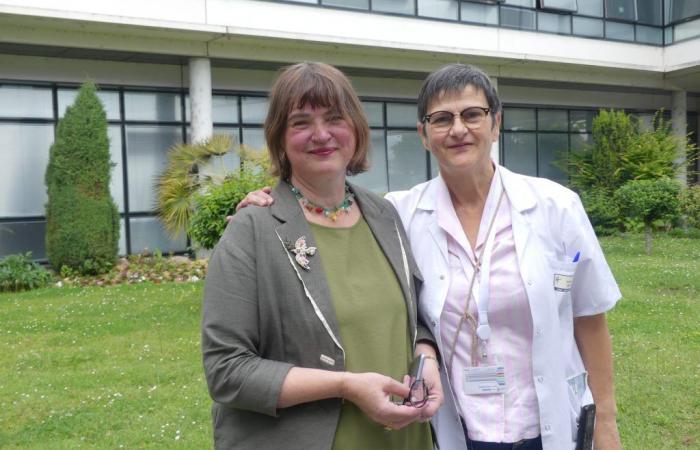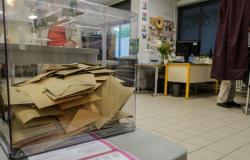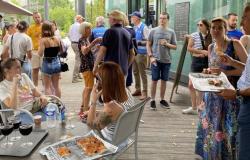For many years, the hospital has been providing comfort services for patients, particularly patients suffering from long-term illnesses such as cancer. We think, for example, of socio-aesthetics or art therapy. Acts not necessarily covered by social security, and often financed by external donations. They nonetheless remain essential in the eyes of users and caregivers who consider them to be care in their own right.
Among these external speakers who cross the walls of the Tours University Hospital there is Florence Escrivat. Her last name gives an indication of her profession: this Lille resident is a hospital biographer. After studying human sciences and communication, she worked for a long time in the communications sector and the associative sector, “always linked to the written word” she insists! “Since I was little, I have had a great interest in life stories. »
His current job came late, in 2016. “At one point I wanted to lend my pen to people who were experiencing illness and who had things to say. Not everyone is able to pick up a pen.” justifies Florence Escrivat who followed training focused on palliative care before launching, “because going to the bedside of the sick cannot be improvised. You have to learn how to approach these people, and I wanted to know if I had the ability to do so. »
“More widespread in Anglo-Saxon countries” the job of hospital biographer is rather confidential in France. In Tours, this is the first time that the University Hospital has used it. Funded through donations, it is offered (free) to patients treated in the Kaplan building of Bretonneau hospital. Exclusively people who will not recover. “It’s important because it allows them to leave something behind.”explains doctor Catherine Barbe who supervises the system.
Thus, Florence Escrivat spends 4 days a month in Tours. During these stays, she speaks with people previously identified by the medical profession, and who are volunteers to benefit from this supportive care. Their discussions will result in a book which will be given to patients, or to their loved ones in the event of death. Since the start of 2023, around ten people have been able to experience the process.
“I work in a fairly traditional way with a notebook and a pencil” Florence Escrivat slips in, who mostly listens, but sometimes asks a few questions to clarify points in the story. Interviews that adapt to the fitness level of the people met, but do not exceed 1 to 2 hours. “We will ask them to talk about their childhood, their parents… The final result will correspond to the way in which the person wrote the story. I write in the first person and without distorting their words. If someone has everyday language, I’m not going to turn their way of speaking into a literary narrative.” specifies the biographer who is also sometimes asked to write letters for loved ones, “including one addressed to a little 6 year old boy”.
These are therefore stories written from the feelings of the people being biographed. “It’s their experience, it doesn’t matter if it’s right. We don’t check.” specifies Dr. Catherine Barbe. “It’s their book, their story” adds Florence Escrivat, regularly moved by what she hears: “Sometimes people confide to me things that have never been said. These people want to get ready to leave, to relieve themselves, to tell things that their family does not necessarily know. » And sometimes, she filters, if we ask her not to transcribe certain things, “or if this does not add additional stone to the dysfunction. »
Side effect of exercise “this job can keep them going” note Florence Escrivat. “Each day that passes is a renunciation of life but suddenly someone offers to give meaning to their story by telling themselves. To say ‘this is what my life has been’. » Catherine Barbe completes: “We had the case of a gentleman who was very angry about his illness. The biography allowed him to find purpose and reconcile with his children. »
A project seen as essential by the doctor, who hopes for a renewal of the donation budget to extend it to the University Hospital or even extend it to palliative care services because for the moment it is only available in day hospitals. The search for funds is underway with the League against Cancer, CANCEN or the hospital Endowment Fund. Note that a partnership has also been established with the Albert Bayet high school in Tours for the printing of beautiful books to be given to patients, “what created intergenerational meetings” underlines Catherine Barbe.
The cancer department is finally in contact with volunteers from the Tours art bookbinding association.
One more degree:
This Saturday, June 29, an adapted sports challenge against cancer is organized at the Stade de Grandmont in Tours. A challenge to be carried out in a team of 4 people to promote physical activity, particularly for sick people. Information and registrations on the website www.roseandblu.org.






